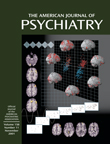To the Editor: We were pleased to read that Dr. Stern considers our studies outstanding and is in agreement regarding the necessity of integrating psychotherapy and pharmacotherapy in the treatment of patients with borderline personality disorder. Medication treatment was integrated within our program to prevent pharmacotherapy from becoming the vehicle for splitting of professionals from the focus of enactments. In our view, the separation of psychotherapy and pharmacotherapy prevents prescribing from being informed by an understanding of the meaning and context of a crisis, particularly within the patient’s broader transference to treatment and the treating team’s countertransference. Attention to these issues, we feel, helps compliance with treatment.
The symptom-cluster approach to pharmacotherapy for patients with borderline personality disorder was not well developed in the early 1990s. Many of the double-blind, controlled trials of medication—for example, the selective serotonin reuptake inhibitors—were published only in the mid-1990s, when our study was well underway. However, we developed prescribing guidelines at the beginning of the trial to ensure that both the partial hospitalization group and the control group were subject to the same informed prescribing rationale. These guidelines were updated by using a symptom-focused model as new evidence was available and became part of the hospital’s prescribing policy.
Although there is now evidence for the use of antipsychotic and antidepressant medication in treating patients with borderline personality disorder, the status of mood stabilizers in treating this illness remains uncertain. In our original guidelines, mood stabilizers were considered to be possibly useful in treating affective and impulsive symptom clusters, but no clinicians used them during the initial study. However, two of the patients undergoing partial hospitalization elected to take carbamazepine during the follow-up after one of them had done research on the World Wide Web. We agreed to this since the contraindications were negligible and the patients’ initiative to do research was consistent with our policies to encourage self-determination.
Providing the detailed data about medication use that Dr. Stern suggests is a laudable aim but difficult to carry out in an effectiveness study with limited funding. However, we do have further data on prescribing patterns from prescription charts and hospital dispensing records for the different time periods. We consider these data to be part of our attempt to investigate cost-effectiveness. However, there are some problems that may limit the conclusions that can be drawn from them.
First, the control patients obtained medication from different sources without their psychiatrists’ knowledge. We are attempting to trace the sources of these prescriptions, but this is a challenge even within the context of a socialized mental health care system. Second, we have no way of knowing the level of patient compliance with the medication regimen, particularly in the control group. During the follow-up period three patients in the control group had prescriptions for lithium, but blood drug levels, when they were available, suggested that compliance was poor. Of course, we had no serum levels for the patients taking other forms of medication. Nonetheless, we agree with the points suggested by Dr. Stern, and we will try to report more specific details of the prescribing patterns in a future report on cost-effectiveness. Finally, we are engaged in an ongoing, randomized, controlled outpatient treatment study of patients with borderline personality disorder without previous partial hospitalization.

